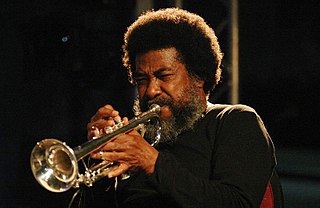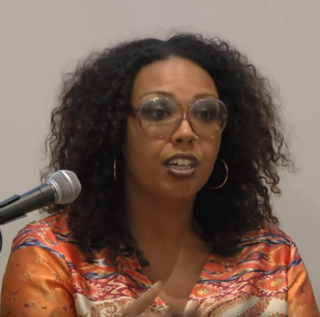A Quote by Wadada Leo Smith
I wanted to identify that the black experience is American experience.
Quote Topics
Related Quotes
I don't really identify with America, I don't really feel like an American or part of the American experience, and I don't really feel like a member of the human race, to tell you the truth. I know I am, but I really don't. All the definitions are there, but I don't really feel a part of it. I think I have found a detached point of view, an ideal emotional detachment from the American experience and culture and the human experience and culture and human choices.
I am very happy here [on Cuba], but I feel I have work to do in the United States. It's where I can identify with the total world struggle for socialism. But I think as a North American, as a Black North American, I have certain understandings - certain contributions - to make that are unique to the North Amerian experience.
There's no reason why you can't say "August Wilson, playwright" even though all of my work, every single play, is about black Americans, about black American culture, about the black experience in America. I write about the black experience of men, or I write about black folks. That's who I am. In the same manner that Chekhov wrote about the Russians, I write about blacks. I couldn't do anything else. I wouldn't do anything else.
There is a problem in America. An Irish or Polish American can write a story and it's an American story. When a Black American writes a story, it's called a Black story. I take exception to that. Every artist has articulated to his own experience. The problem is that some people do not see Blacks as Americans.
While I might not have a specific experience that is fully American, there is still a knowledge, something that I logically understand as a black woman and a black woman who is existing in America and a black woman who is in the diaspora that are just known quantities that I think anyone can relate to who is black.
If we only identify with the mortal world, then we identify with a level of scarcity and lack and brokenness, and that will be our experience. But if we shift our experience of self-identification - and this is what enlightenment is - from the body-self to the spiritual-self, then we place ourselves under an entirely different set of possibilities and probabilities.


































